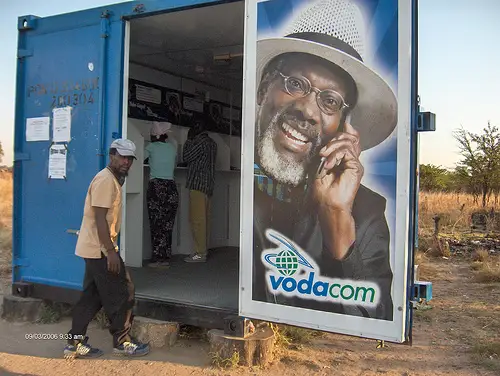Mobile phones for development
A lot has been debated about the one laptop per child initiative, but less has been said about the use of mobile phones for development. Even though according to a DFID and vodafone study "the number of mobile users is growing twice as fast in developing countries as in developed countries. Africa has now the fastest-growing mobile market in the world." Another example is Grameenphone, which provides universal telephony in Bangladesh using microloans creating new income opportunities especially within the rural population.
For the first time communication technology is widely accessible in developing countries, and that does not only carry economical potential, but also social implications. This offers new approaches for development as it is shown in a BBC-report: sms information services such as job announcements, or money transactions through mobiles --where bank accounts are scarce, or network linked to activism and its effects on social hierarchy. The following examples show more successful approaches with positive impacts:
- Indian Farmers send SMS to sort out problems
- Farming on mobile phones in rural Uganda
- How mobile devices such as PDAs can improve health care delivery in Africa
- The Frontline SMS application made it possible to monitor the Nigerian election by mobile phones
(Photo has been taken from Esthr from flickr)
The adaption of mobile technologies and its approaches can be totally different and vary between countries and cultural settings. But it seems clear that technology itself is not the driver for change, instead, it is what the people make out of it, and the approaches which are ideally developed or adapted to the local context. An example of that is the EPROM program, which is trying to encourage people in developing nations to learn how to build applications for mobile phones. Another interesting question is whether a connection to the web will enhance the usage of mobiles to share knowledge and to coordinate networks. Maybe Twitter could be such a tool that will bridge the web and the very popular use of sms to organize and coordinate as Soyapi Mumba describes in his post. To be continued....
